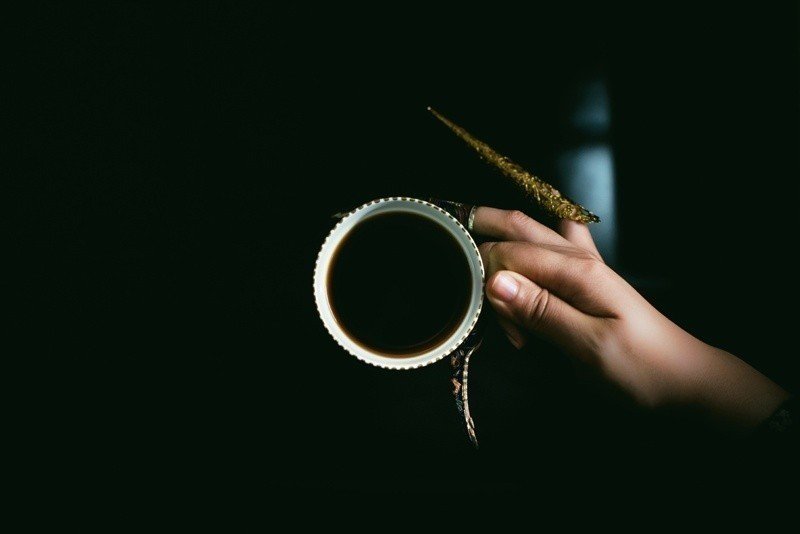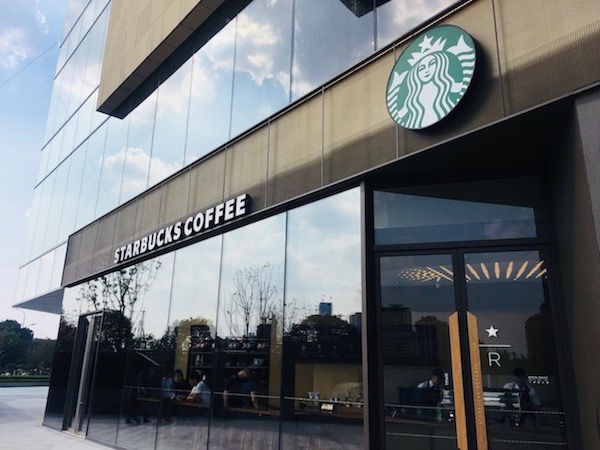The west wind in the coffee cup is spreading to the east: is Starbucks a waste of Chinese culture?

Professional coffee knowledge exchange more coffee bean information please follow the coffee workshop (Wechat official account cafe_style)
The word "coffee" first appeared in the Chinese Dictionary in the early years of the Republic of China, became the official name of the unified world, and finally put an end to the strange and chaotic translation of "Kao Fei" and "eating fat". China is a country of writing, so it must have a correct name. The confirmation of the word "coffee" represents the final acceptance of this imported object by civil society. But in fact, coffee landed in China long before this. It came to the east with Western businessmen and missionaries at the end of the Ming Dynasty. It is said that the Dutch once tried to plant coffee trees in Taiwan, but it was not very successful.
In the eyes of the general public, coffee is a funny thing that foreigners like to drink. Guangzhou was the first port to be opened, before it became popular. In about 1836, near the Shishihang clothing Wholesale Market in Guangzhou today, the Danes opened a coffee shop, the first coffee shop in China. However, the Chinese did not go in for coffee and felt that the cup of black bitter water behaved suspiciously and called it "black wine." Guangdong Tongzhi during the Jiaqing period said: "there is wine in foreign countries." There is also black wine, and ghosts drink it after dinner. Yun this wine can be eaten. "
We don't know when the palace began to drink coffee, but there is a set of coffee sets offered by the British to the Qing royal family in the 18th century, including a white porcelain pot and a jar, two white porcelain cups and plates, two silver spoons and one silver clip. The white porcelain is decorated with patterns, the edge of the mouth is painted with gold and blue, the feet are covered with silver flowers, and the bottom is written in English Royal Worcester England, which is the famous Royal Worcester.
This coffee set was seldom used, and it was not until the last emperor Puyi that it became his special coffee set. Although drinking Western things such as coffee, the whole utensil shows a strong oriental element. Puyi also loves a silver coffee set: the spout and handle of the coffee pot are designed to look like bamboo knots, the pot is decorated with chrysanthemums, and the sugar jar is engraved with scenes of the two playing games under the tree.
Educated in Johnston, an Englishman, Puyi knows how to drink coffee. "if drinking coffee is like boiling water, take a snack as a meal, or a fork and spoon jingle." That's broken. In Britain, eating snacks and drinking coffee is Refreshment, not eating. " Lafayette also likes to follow the fashion. He once asked the wife of Yu Geng, minister in France, for coffee and wanted to taste the "bitter water" that foreigners drink after dinner. Emperor Guang Xu's love of coffee is an open secret. The ci of the former Qing Palace wrote that he was quite addicted to coffee, and the poem said: "only then did he stop eating at the banquet and brew coffee over a small fire."
When Guang Xu died in 1908 and the secretary in the palace was not in mourning, the New York Times first reported the news and quoted a diplomat who described what he had seen not long ago when he met the saint:
The appearance of his Majesty the Emperor of the Qing Dynasty looks older than his age. His forehead was sunken and his face was yellow. When he saw us diplomats, his spirit was shy, and his dull eyes may have been glowed by opium or coffee at this moment. There was sadness, tiredness and a childish smile in the corners of his mouth.
Emperor Guang Xu certainly did not expect that a few years later, a famous host of CCTV publicly criticized the Imperial Palace in Beijing. Starbucks, which was labelled in the palace, was a waste of Chinese culture. If Lafayette hears this, he is bound to roll ten thousand white eyes: this insight is far inferior to that of the old-fashioned Qing Dynasty.
This article is excerpted from what the Emperor eats. Please refer to this book for more information.
END
Important Notice :
前街咖啡 FrontStreet Coffee has moved to new addredd:
FrontStreet Coffee Address: 315,Donghua East Road,GuangZhou
Tel:020 38364473
- Prev

Starbucks can't tell you the secret of 5 careful ways to make your pocket out of control
Professional coffee knowledge exchange More coffee bean information Please pay attention to coffee workshop (Weixin Official Accounts cafe_style) Starbucks can become the world's largest coffee chain, in addition to successfully shaping its taste symbol, in fact, there are also its unique marketing methods behind, so that customers are willing to pay more, and keep returning to the store consumption. Coffee is popular, coffee shops everywhere, from the United States West Asia
- Next

Starbucks has revenue of US $6.6 billion in the first quarter of 2019 and will open 2100 new stores for the whole year
Professional coffee knowledge exchange more coffee bean information please follow Coffee Workshop (Wechat official account cafe_style) Coffee chain giant Starbucks announced results for the first quarter of 2019 (ended December 30) after the close of trading on Thursday. During the period, total revenue was $6.633 billion, up 9.2 percent from $6.074 billion a year earlier. In terms of net profit, this year's quarterly net profit
Related
- What documents do you need to go through to open a coffee shop? coffee shop coffee shop certificate processing process
- How to purchase Coffee beans in small Cafe how to choose a suitable supplier for domestic Coffee supply Company
- How to drink Starbucks Fragrance White Coffee? how to make Australian White Coffee? what Italian coffee beans are recommended?
- The Story of Flora Coffee: the name of Flora Coffee Bean and the implication of the Flowers on Florna Coffee
- How much does a cup of coffee cost? How much is the profit of a cup of coffee? What is the profit of the coffee shop in a year?
- Yunnan small Coffee, known as "fragrant Coffee", introduces the characteristics of Alpine Arabica Coffee producing areas in Yunnan, China
- 2023 latest Starbucks full menu price list how much is a cup of Starbucks coffee what is better to drink the most popular hot and cold drinks recommended
- Starbucks different kinds of Coffee Price list Starbucks menu 2023 Top Ten Best drinks in Starbucks
- Starbucks Spring praise Comprehensive matching Coffee Bean theme Story Packaging implication and taste description
- The cost of a cup of coffee latte American coffee cost price and selling price

